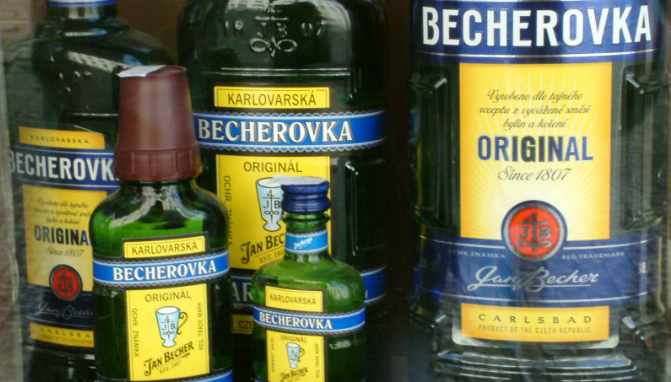Earlier this year I overheard a young Czech man discussing with his foreign friends the election of Zeman. The focus wasn’t on the policies or the man’s leadership style. It was his alleged drinking which was the problem. I’ve heard the same opinion repeated often around me and the coverage in the media and the people uploading video to YouTube shows the feeling is far from isolated.
This isn’t surprising in itself. Seeing a man who was president for only a matter of minutes stagger and stumble to his chair and then sway during the interview would cause many people to cringe. But hang on a minute. This is in a country which takes pride in both its drinking and its beer. Is Zeman really such an anomaly as far as drinking is concerned?
World Leaders
Statistics only tell part of the story, but it’s a clear story. The Czech Republic, as I’m sure many of you have heard, has the highest consumption per person of beer and has held this title for the past 18 years. The most recent estimate from 2010 states 131.7 litres per person per year. A representative from the company which calculated the amounts said it was total volume divided by the total population. When you exclude those below the legal drinking age, the per capita amount for drinkers is even higher.
The World Health Organization had ranked the Czech Republic second in terms of overall alcohol consumption: 16.45 L of pure alcohol for the period of 2003–2005 for every person fifteen years and over. However, the results were published in 2011. A more recent study from 2010 of European nations records 11.4 L per person, placing it just above the EU average.
The beer consumption figures hide the fact that most beer consumers are men and most men (around 90%) are regular beer consumers. How regular? A report (in Czech) published by the National Health Institute (Státní Zdravotní Ústav) shows that about 40% drink at least once a week. Less than a fifth of that total or about 6% of the whole drank daily which might suggest that, at least for some, quite a lot of beer is consumed in one sitting. And yet, binge drinking in a UK or US sense doesn’t seem to be acknowledged or even quite as severe.
It’s a Cultural Thing
The hallowed position of beer in Czech culture will not be lost on anyone who lives here. One question I’m constantly asked is what I think of Czech beer. I’m also aware of the puzzled glances I’ve received in social situations on the rare occasions when I have declined to have a beer or opt for water.
The significance of beer is openly acknowledged. The Center of Public Opinion Research (CVVM), which has been doing a study since 2004, said in a press release:
“Concerning beer, the largest section of Czech men and women think it is a part of Czech culture and tradition, that the drinking of beer belongs to the inhabitants of the Czech lands and that it is something we can be proud of.”
Though beer may rule people’s hearts and to some extent livers, wine and spirits have their place too. The methanol poisonings in 2012, when two men provided spirits containing methanol to roadside vendors, witnessed a halt, though such concerns would appear to be at an end. Fruit brandies are part of the history and the number of distilleries has risen according to the Union of Distillers of the Czech Republic, yet the consumption of hard liquor has been slightly declining from 1992 to 2010, which was before the scandal.
Digesting the Data
So how do Czech people feel about these results? Kind of proud it would seem. Two fifths of Czech men and about one sixth of Czech women were proud of the nation’s ranking among world drinkers. In contrast, the ranking made a quarter of women and a tenth of men feel ashamed.

The report says that a correlation between drinking and shame was only strong with women. The less a woman drank, the more likely she was to feel ashamed. Men who drank less tended to have mixed feelings or not care.
Even if not all people are proud of the country’s drinking reputation, drunkenness rated quite low (in Czech) on a survey of what people found morally unacceptable. Actions were awarded numbers between one and ten. The lower the score, the more unacceptable the behavior. Getting drunk out of sorrow or joy both rated about six, which was a slight increase, showing it was a little more acceptable.
Reaching the Limits
Drunk-driving, however, was the most unacceptable behavior on the same table. And the law doesn’t reflect the cultural position of alcohol. The labor code prohibits drinking at work and it’s said breath tests are possible.
When I checked this with the Ministry of Labor and Social Affairs, a representative responded that an employer or superior is empowered to check for alcohol or addictive substances. Added to that, getting fired for drunkenness at work is on the rise (in Czech). Last year, drinking at work rose to the fourth reason for firing, up fourteen places over the last three years.
Final Thoughts
“So why doesn’t it apply to the office of the president?” a friend asked, no doubt voicing a concern of many.
Drinking when represented by facts and figures is okay, but when it’s a swaying pasty-faced elderly man, slurring his words, people are more uncomfortable. This makes sense. We all tend to expect a little more of our leaders, even if we suspect they never live up to it. Though, if iDnes is to be believed not everyone has a problem with it. However, the head of CVVM wrote in an email that the article forgets to mention that two thirds of Czechs think disruptive drunken behavior is a reason for a politician to be dismissed.
I don’t think the guy on the tram, or the many Zeman critics around me, are in a small minority but I don’t think what they say can be taken at face value. It’s not the drinking but what the drinking represents, a fear to the pre-revolution days of vodka soaked leaders and the sway of Moscow. Despite the pride and place of beer, the meaning of alcohol to some people is not clear-cut.
**
What are your thoughts on attitudes towards drinking in the Czech Republic?












 Reading time: 5 minutes
Reading time: 5 minutes 

 English
(Proficient)
English
(Proficient) Arabic
(Proficient)
Arabic
(Proficient) Turkish
(Advanced)
Turkish
(Advanced)






















